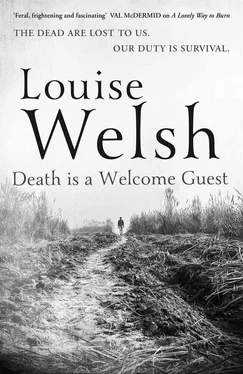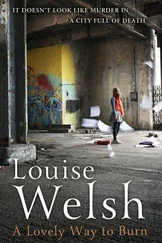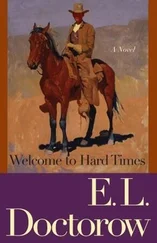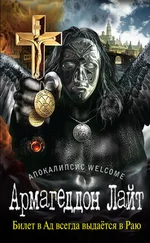Magnus pitched a small tent in the woods at the back of Tanqueray House. The tent was olive-coloured, perfect for blending into the foliage he draped over it for camouflage. He lay there, wrapped in a sleeping bag, conserving his energy, the high-performance rifle by his side. The tent and sleeping bag had been stashed in a cupboard beneath Mr Perry’s stairs, along with a supply of freeze-dried food. Magnus wondered about the fox-hunter. Had he been ex-military; a spy hiding incognito from enemies he feared would track him down? Or was he a gun freak who, if the sweats had not intervened, would one day have stationed himself in an upper room of his cottage and picked off children, one by one, as they played in the schoolyard opposite?
Jeb had been right, Magnus thought. He should have found a gun sooner, put it to Will’s head and forced him to open the dungeon. Now things had escalated. He thought about running away and stayed where he was.
Magnus had mistrusted trees, but now they were his allies. He listened to the wind shivering the branches, the rustle of birds tossing through fallen leaves in search of grubs, the occasional scurry of mice and voles. He let himself be absorbed by the noises of the wood so that he would hear an intruder if they approached.
Magnus tried to picture where Raisha might be and hoped she was safe. He thought about Belle too and wondered if she had ventured out of hiding to meet Malachy. If Raisha was right about the girl’s father complex, the lawyer with his certainties might appeal to her. He remembered his last conversation with Father Wingate and the priest’s conviction that Jeb’s death would nourish renewal. The old man was mad beyond the usual insanity of religion.
After a while Magnus dropped into a half-doze and lay in dreamless dread until the screech of an owl woke him. It was cold and damp in the dark wood. Magnus dragged Mr Perry’s black tracksuit on top of his clothes. He shoved the ski hat on his head, pulling it low over his brow and wishing that he had thought to steal some boot polish to blacken his face. He spat on his hands, rubbed earth on them and daubed it on his exposed skin.
The wood was as alive as it had been when he had followed Raisha, but it bothered Magnus less now. He muttered the Bible verse he had quoted to Father Wingate: ‘There is a time for everything, and a season for every activity under the heavens.’ Harvest was a killing time; the priest was right about that.
When he reached the edge of the wood Magnus realised that the night was not as dark as he had thought. The moon was only a slim crescent, but the air was clear and stars glimmered across a black velvet sky. He looked up and saw Orion’s Belt, the Plough and higher still a shimmer that might have been the Milky Way. His father and Hugh felt very close, though they had not been close to each other in life. His father had never warmed to Hugh, although he was his sister’s child. ‘Sib to the de’il’ he had called him half in jest and ‘a bad influence’ fully in earnest.
He walked down the path to Tanqueray House, hoping Malachy had not posted a lookout. The building was cast in turreted darkness except for the kitchen windows, which glowed with light. At first Magnus thought it was merely Jacob’s paraffin lamps, shining in an empty room, but as he grew closer he saw Father Wingate standing over a pair of jam pans that were steaming on the wood-fired Aga. Magnus guessed the priest was making refreshments for the crowd he hoped would come to the execution. He drew closer and saw that the old man’s lips were moving as he worked, as if he were muttering a prayer or an incantation.
The side door was unlatched. The hallway smelled sourly of Father Wingate’s brew, but it was deserted. Magnus walked quickly to the servants’ staircase, his senses so alert he could almost hear his blood pumping through his heart. It was pitch-black inside the passage, but Magnus did not bother with a torch. He imagined the building as a dolls’ house, its front walls pulled back to show the rooms within: Jeb lying in the foundations, contemplating his execution; Father Wingate standing hunched over his punch in the kitchen; Malachy and his followers alone in their beds on the upper floors, hearts heavy for the loss of their wives and children. He imagined Belle working on her collage in the attic studio, extending the Dance of Death into a worldwide ceilidh. Then he saw himself, a thin man dressed in black, creeping between the walls.
It was cold on the roof. Magnus hunkered down behind one of the decorative urns that punctuated the balustrade. From this height the moon looked like a slash in the fabric of the sky, behind which everything was silver. He heard a pattering noise and started, but it was only a bat. His eyes adjusted to the night and he saw that there were legions of them, flapping blackly against the darkness. The chill penetrated through his double layer of clothing. Magnus remembered the warm liquid bubbling on top of the Aga with longing, though he knew that anything the priest had made would taste foul.
Magnus woke to a pink and blue dawn that gave way to a seamless sky. Pigeons had colonised the roof and daylight revealed their guano, white and foul, plastering the tiles and stonework. The house cast a dark shadow across the lawn that receded as the sun moved higher. Magnus lay on his front, among the bird shit and feathers, watching for the moment the shade pulled free of the execution platform, unveiling it like a prize object in a magic trick.
There was a hum of motorbikes coming and going along the drive. Magnus guessed that Malachy’s men were trying to spread the word, visiting outlying districts, like busy party activists before a by-election.
The sun caught him in its rays about mid-morning. Flies and insects buzzed around his head, making a feast of him. Magnus wriggled free of the black tracksuit and fashioned a turban from the jacket. He had an uninterrupted view of the platform, but worried that by noon the sun would begin to blind him. His childhood had had its seasons and all of them had included a portion of rain. He wondered if this part of England had always been subjected to such relentless summers. He had shoved a bottle of water in his rucksack, along with the binoculars and a few of the packets of dried food from Mr Perry’s house. Magnus felt too sick to eat, but took sips of the water, rationing it to last. He rationed his use of the binoculars too, afraid that the sun would glint against their lenses and give away his hiding place.
Some of the men had started to move trestle tables on to the lawn. Father Wingate fussed among them, dressed in a black cassock. Viewed from above, he reminded Magnus of the bats he had fallen asleep watching. The creatures had appeared fluttery and ill-directioned, but their natural sonar meant that every blind move was sure. The men placed the tables on one side of the lawn and then the other, until the priest was satisfied. Next they brought out tea urns and trays laden with cups and glasses. Magnus was dismayed to see that Malachy’s group had grown larger. He counted five new recruits, all of them men. There were not enough urns to hold Father Wingate’s refreshment and the men set out a variety of jugs and bowls full of brownish liquid which they covered with cotton cloths against bugs.
Malachy trotted across the lawn followed by one of the puppies. The Irishman was dressed all in black and Magnus wondered if he had raided some dead priest’s wardrobe. Someone had fixed Union Jack flags around the platform like a skirt. Malachy stopped to admire the effect before leaping up on to the stage, as jaunty as a new manager about to reassure the workforce that redundancies spelled fresh opportunities. The dog sniffed at the flags and then lifted his leg against them and ambled away. Magnus was unsure what Malachy was carrying until he raised an old-fashioned megaphone to his lips. He had only ever seen one in comedy sketches and doubted it would work, but then he heard Malachy’s voice, Testing, one, two, three, testing , loud and clear across the lawn.
Читать дальше












